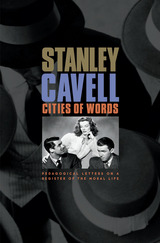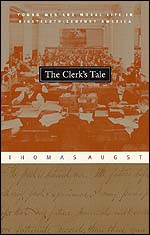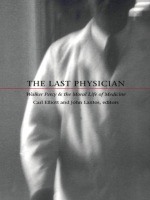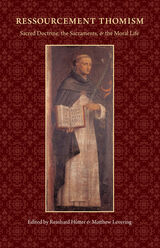

Since Socrates and his circle first tried to frame the Just City in words, discussion of a perfect communal life--a life of justice, reflection, and mutual respect--has had to come to terms with the distance between that idea and reality. Measuring this distance step by practical step is the philosophical project that Stanley Cavell has pursued on his exploratory path. Situated at the intersection of two of his longstanding interests--Emersonian philosophy and the Hollywood comedy of remarriage--Cavell's new work marks a significant advance in this project. The book--which presents a course of lectures Cavell presented several times toward the end of his teaching career at Harvard--links masterpieces of moral philosophy and classic Hollywood comedies to fashion a new way of looking at our lives and learning to live with ourselves.
This book offers philosophy in the key of life. Beginning with a rereading of Emerson's "Self-Reliance," Cavell traces the idea of perfectionism through works by Plato, Aristotle, Locke, Kant, Mill, Nietzsche, and Rawls, and by such artists as Henry James, George Bernard Shaw, and Shakespeare. Cities of Words shows that this ever-evolving idea, brought to dramatic life in movies such as It Happened One Night, The Awful Truth, The Philadelphia Story, and The Lady Eve, has the power to reorient the perception of Western philosophy.

Thomas Augst follows clerks as they made their way through the boarding houses, parlors, and offices of the big city. Tracing the course of their everyday lives, Augst shows how these young men used acts of reading and writing to navigate the anonymous world of market culture and claim identities for themselves within it. Clerks, he reveals, calculated their prospects in diaries, composed detailed letters to friends and family, attended lectures by key thinkers of the day, joined libraries where they consumed fiction, all while wrestling with the boredom of their work. What results, then, is a poignant look at the literary practices of ordinary people and an affecting meditation on the moral lives of men in antebellum America.

The contributors—physicians, philosophers, and literary critics—examine the relevance of Percy’s work to current dilemmas in medical education and health policy. They reflect upon the role doctors and patients play in his novels, his family legacy of depression, how his medical background influenced his writing style, and his philosophy of psychiatry. They contemplate the private ways in which Percy’s work affected their own lives and analyze the author’s tendency to contrast the medical-scientific worldview with a more spiritual one. Assessing Percy’s stature as an author and elucidating the many ways that reading and writing can combine with diagnosing and treating to offer an antidote to despair, they ask what it means to be a doctor, a writer, and a seeker of cures and truths—not just for the body but for the malaise and diseased spirituality of modern times.
This collection will appeal to lovers of literature as well as medical professionals—indeed, anyone concerned with medical ethics and the human side of doctoring.
Contributors. Robert Coles, Brock Eide, Carl Elliott, John D. Lantos, Ross McElwee, Richard Martinez, Martha Montello, David Schiedermayer, Jay Tolson, Bertram Wyatt-Brown, Laurie Zoloth-Dorfman

In the 1988 U.S. presidential campaign the word “liberal” was bandied about as though it were a term of abuse. Charges hurled from the political right and left accused liberalism of moral failing: liberalism lacks concern for good character and civic virtue; its preoccupation with private liberty and toleration is morally anemic and ultimately erodes shared public values. Against this background, philosophers and political theorists take stock of the historical varieties of liberal thought and of the present relation between liberalism and moral living.
Liberalism and the Moral Life presents the timely thoughts of twelve prominent scholars who are redrawing the map of liberalism: Richard Ashcraft, Benjamin R. Barber, Seyla Benhabib, William Galston, Amy Gutmann, Stephen Holmes, George Kateb, Steven Lukes, Susan Moller Okin, Nancy Rosenblum, Judith N. Shklar, and Charles Taylor. In essays that go beyond the conventional defense of liberalism based on moral skepticism or the possibility of discovering neutral principles, these writers consider possibilities for reinspiriting liberal thought. They offer fresh arguments for the moral status of individualism and argue that distinctively liberal virtues and practices sustain democracy, constituting a moral life that people share in common. Moving beyond theory, the authors point to a variety of institutional contexts within liberal democracy that provide moral education and opportunities for expressing commitment to substantive moral values.


Although he is one of the most influential Catholic theologians in Europe, very few of Klaus Demmer's writings are available in English. This translation of his well-known work on moral theology introduces Demmer's thought to English-speaking audiences.
In an original synthesis of scholastic and continental philosophy, Demmer brings the Catholic moral tradition into conversation with contemporary philosophical schools—transcendental, hermeneutical, and analytical—to fashion a moral theology in the spirit of the Second Vatican Council. He shows the richness of the neoscholastic tradition in shaping and being shaped by our contemporary self-understanding.
A complete bibliography of Demmer's works will assist readers in seeking out more of his writings.

READERS
Browse our collection.
PUBLISHERS
See BiblioVault's publisher services.
STUDENT SERVICES
Files for college accessibility offices.
UChicago Accessibility Resources
home | accessibility | search | about | contact us
BiblioVault ® 2001 - 2024
The University of Chicago Press









